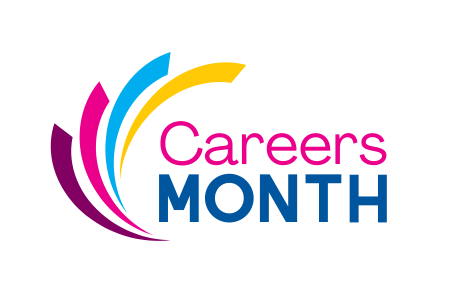As part of Careers Month 2025, we would like to extend an enthusiastic thank you to Emma Laurenson, Business Manager (Scotland), for SRG Talent who is kindly sharing her insights and advice from working as a specialist recruiter in the science, engineering, and life sciences sector. Emma has also shared further guides and resources, as well as her email address for anyone wanting to send their CV and register interest for future vacancies. Read Emma’s advice first! And act on it. We’ve included links to relevant resources which can help you follow up on Emma’s expert advice.
Transitioning to industry from academia – Life Sciences
Stage of Career
Making the move from academia to industry is not always straight forward and it is worth thinking about what you want from the future of your career as soon as possible. It is often easier to make the move sooner rather than later and at an earlier stage of your academic journey and will also mean more comparable salaries.
Take action: Read I have a PhD: what-the-heck level of job can I apply for beyond academia? – PostGradual: The PhD Careers Blog
Salary Misconceptions
People often believe if they make the move from academia to industry, they will instantly get a pay rise- this is often not the case! Although you may have some transferable skills, much of the industry want industry specific skills and will not pay the top end of salary ranges for someone without this kind of experience. However, if you can make the move, career development and promotions are often easier to achieve and long term career paths clearer within industry.
Take action: Prosper Postdoc Portal’s advice on Negotiating Job Offers
Working Environment/Culture
Do research into what working in industry looks like and try to speak to people already working at different companies. Environment, timelines and pressure can look very different from academia as you are working in a commercial and often client driven environment with very strict financial and regulatory deliverables.
Ask yourself some questions:
Why are you looking to transition to industry? Would this type of pressure suit how you like to work? Can you adapt a much faster pace of work and will you enjoy this type of role?
Take action: IAD’s Career Values and Drivers microworkshop – pay special attention to the career anchors activity linked below the video
Develop your Commercial Awareness using the Prosper Postdoc Portal
Career Realism
Look into what different industry jobs entail and job adverts to see what skills and experience are required from suitable applicants. Not all roles are comparable- for example, managing your own research project in academia is also not the same as being a Project Manager in an industry environment where you oversee multiple client projects. If you are looking to make the move, think about what transferable skills you do have and if you will need to take a step back or sideways move to make the long term change in your career. Be selective, tailor your CV and ensure you do meet the requirements for the role before you click apply!
Take action: Common Pitfalls of Job Applications (and how to avoid them) from the Prosper Postdoc Portal
Start Ups and Spin Outs
Often start ups and spin out companies have a working environment more similar to academia and working there can be an easier transition than moving to an established industry name. Look out for these companies online/within the university and any vacancies they may be looking to hire direct.
Take action: Develop your Commercial Awareness using the Prosper Postdoc Portal
Industry placements/Experience
Look out for opportunities to do some work in industry or collaborations with exposure to private, working lab environments as this kind of experience on your CV will make you stand out from other academic applicants.
Take action: Read IAD’s suggestions on Gaining Work Experience
Sponsorship
Many companies are unable to provide sponsorship, and it can be difficult for them to do so and therefore many roles require you to have long term right to work in the UK without the need of a new visa.
It is important to remember that when applying for jobs in industry, these roles are often very competitive and you may be up against candidates with a wealth of industry experience and so a rejection is not always a reflection of your skills so don’t take it personally!
Useful Guides:
https://www.srgtalent.com/blog/how-to-write-a-scientific-cv
https://www.srgtalent.com/blog/using-social-media-to-advance-your-career
https://www.srgtalent.com/blog/how-to-prepare-for-competency-based-questions-in-your-interview
https://www.srgtalent.com/blog/tag/career-advice
If you would like to register with SRG for any potential future vacancies, send your CV to emma.laurenson@srgtalent.com.
PS For additional advice from a Technology sector recruitment consultant, see this recording from last year from our ‘Careers Briefing Session with Recruitment Consultant’. Lowri Davies, the recruitment consultant, talked is an expert in recruiting into roles in IT, and is available on Media Hopper: https://media.ed.ac.uk/media/Making+a+career+transition+%E2%80%93+advice+from+a+recruitment+consultant+-+Briefing+Session/1_ap80rah7 [Edinburgh log in required]


